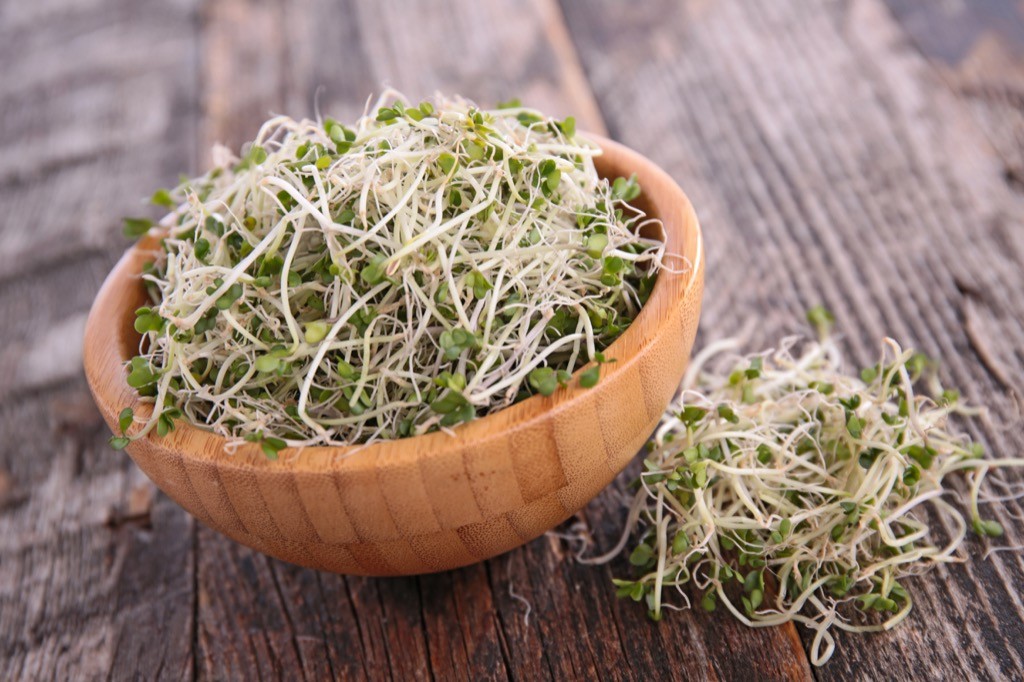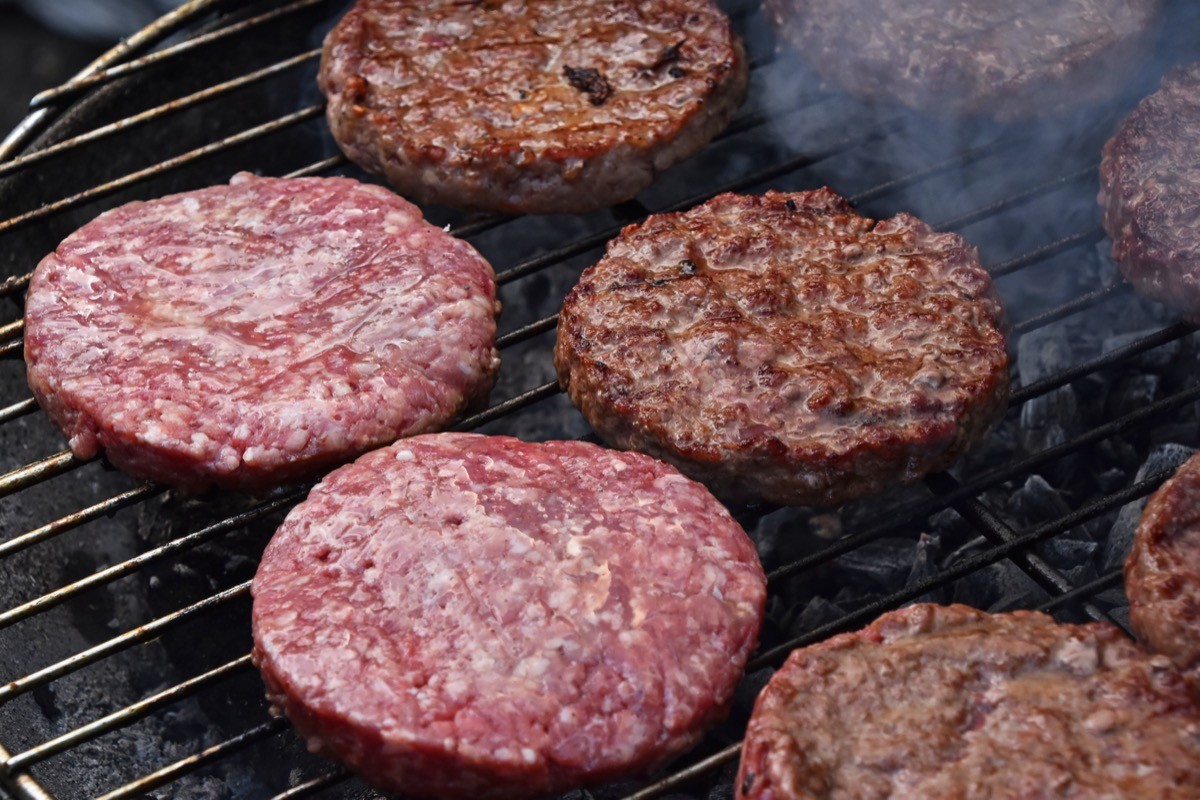Food Scientist Reveals the 2 Things She Never Eats: “You’re Gonna Hate Me”

Healthy eating is top of mind for many of us, especially with 2025 approaching. You may be prioritizing your diet or perhaps getting ready to re-up your gym membership at the start of the new year. But while diet and nutrition are important, it’s also vital to remember food safety to keep yourself healthy and happy. In fact, Hydroxide, a food scientist on TikTok and Instagram (@hydroxide.foodscience), said there are two specific foods she doesn’t eat for this reason.
RELATED: The 3 “Ultraprocessed” Foods You Must Avoid for a Longer Life, 30-Year Study Finds.
1. Raw sprouts

In a Dec. 29 TIkTok video, Hydroxide warns her followers that they may not like what she says, specifically telling them, “You’re gonna hate me after this video.” However, she goes on to reveal the first food she generally avoids, which is raw sprouts.
“I will occasionally eat them, but they are a very, very, very high-risk food,” she says, comparing foodborne bacteria to “your besties on spring break.”
“They want to go somewhere hot and moist, and they are thirsty,” she jokes.
She continues, “So sprouts are grown in the ground in the warmest, most moist, humid, wet environment you can imagine—and guess what? Bacteria love it.”
Hydroxide says that to make them safe to eat, you’d need to blanch them or “cook them into submission.”
She specifically warns viewers about the raw sprouts that come on top of dishes like pho.
“I do not touch those. I do not eat those,” she says. “I’m really sorry.”
2. Certain hamburgers

The second food that Hydroxide skips is “any kind of burger that is cooked more on the raw side,” noting that she orders her hamburgers well done.
This is because they’re typically made with mechanically tenderized beef, AKA meat that has been pierced with needles or blades to break up muscle fibers, per the U.S. Department of Agriculture’s Food Safety and Inspection Service (FSIS).
“If there’s like a little piece of meat down there that has E. coli on it, Salmonella, whatever it is, you are basically taking that and distributing it everywhere in that ground meat,” she says.
Hydroxide notes that this is specific to ground beef (as well as steak) because poultry like ground turkey and ground chicken have to be cooked to internal temperatures of 165 degrees Fahrenheit. (The FSIS sets these temperature recommendations to help avoid foodborne illness and harmful bacteria.)
RELATED: 6 Things You Should Never Leave Out on the Counter, Food Experts Warn.
Food safety should be a priority.
While several commenters joked that they feared she would mention processed foods like Doritos or Diet Coke, eating contaminated food can pose serious health issues.
To keep yourself safe, the FSIS recommends washing your hands and surfaces often, cooking food to a safe minimal internal temperature, and refrigerating food. The agency also warns against cross-contamination, meaning you should avoid using the same dishes or utensils for raw and cooked products.
Hydroxide warned about this as well, specifically regarding raw sprouts.
“When you’re handling high-risk food, all of that moisture that’s carrying all that bacteria could get on your kitchen supplies as well and your counters and your sink and lots of other things,” she says.